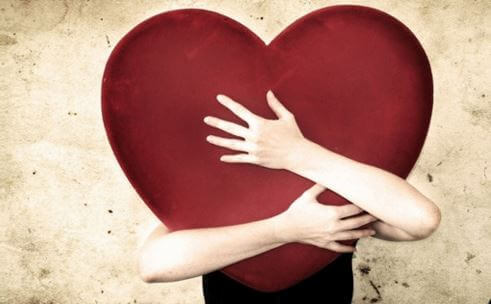Self-Esteem and Emotional Dependence


Written and verified by the psychologist Sergio De Dios González
Humans are social beings. We like to please and share things with others. But can the need for approval be harmful? Yes – in fact, it’s one of the causes of emotional dependence. Do you need to please everyone, or only those who are really important to you? Who are the important people in your life? Do they have to approve of absolutely everything you do?
We invite you to ask yourself these questions and then try to answer them. It’s one thing to know what you want to do and what you want your loved ones to approve of, and another thing entirely to feel like something isn’t worth doing if the whole world doesn’t love you for it. It’s a subtle yet important difference. Keep reading to find out how this can all influence your state of well-being!
“If you aren’t good at loving yourself, you will have a difficult time loving anyone, since you’ll resent the time and energy you give another person that you aren’t even giving to yourself.”
What is emotional dependence?
Emotionally dependent people need the affection, attention, and approval of others to an unhealthy degree. They have an irrational fear of loneliness and abandonment, which makes them more submissive in their interpersonal relationships. They also have a strong desire for exclusivity, saying things like they can’t imagine life without their partner.

Thus, they present a persistent pattern of emotional needs that they can’t satisfy themselves, so they try to meet them by establishing inappropriate bonds with others. In other words, they develop parasitic and asymmetrical relationships, justifying their actions by attributing them to the goal of maintaining the relationship.
“The worst loneliness is to not be comfortable with yourself.”
And that’s not all. They long for protection and affection so intensely that they completely lose themselves in the relationship in their desire to maintain it, regardless of the actual quality of the relationship. They establish intense and unstable bonds, in place of healthier ones. Of course we all want to be loved, but we wouldn’t do absolutely anything to achieve it, would we?
How does emotional dependence influence psychological well-being?
The problem with depending too much on others emotionally is that if the person doesn’t receive the disproportionate attention and affection that they require, they start to irrationally doubt their own worth and how much others appreciate them, which has a negative influence on their emotions and self-esteem.
They start to feel rejected, denied, abandoned. The resulting sadness is overly intense, which can lead to a vicious cycle of emotional emptiness, chronic dissatisfaction, and ultimately, depression.
Not only that, but the fear of being alone causes them to do anything to avoid loneliness, which increases their anxious symptoms. When they anticipate that they might be lonely, they get extremely nervous and throw themselves into toxic relationships.
Self-esteem can counter emotional dependence
As you can imagine, emotionally dependent people have a low self-esteem and think of themselves negatively. Once again, this leads to a greater need for support and affection. They depend on others to feel good about themselves.

The only person you’re going to spend your whole life with is yourself. Therefore, your well-being should depend not on the approval of others, but of yourself. This means that the first person you should try to please with your actions is yourself.
“People who want the most approval get the least and people who need approval the least get the most.”
-Wayne Dyer-
But what can you do to love yourself more? One simple exercise is to do something every day that makes you feel good, both physically and psychologically. It might take some effort at first, since most of us aren’t used to treating ourselves, but over time you’ll start to foster positive feelings towards yourself. In this way, you’ll prevent yourself from falling victim to pathological emotional dependence. So go on and love yourself!
Images courtesy of Rebecca Matthews, Adam Jang and Hope House Press.
Humans are social beings. We like to please and share things with others. But can the need for approval be harmful? Yes – in fact, it’s one of the causes of emotional dependence. Do you need to please everyone, or only those who are really important to you? Who are the important people in your life? Do they have to approve of absolutely everything you do?
We invite you to ask yourself these questions and then try to answer them. It’s one thing to know what you want to do and what you want your loved ones to approve of, and another thing entirely to feel like something isn’t worth doing if the whole world doesn’t love you for it. It’s a subtle yet important difference. Keep reading to find out how this can all influence your state of well-being!
“If you aren’t good at loving yourself, you will have a difficult time loving anyone, since you’ll resent the time and energy you give another person that you aren’t even giving to yourself.”
What is emotional dependence?
Emotionally dependent people need the affection, attention, and approval of others to an unhealthy degree. They have an irrational fear of loneliness and abandonment, which makes them more submissive in their interpersonal relationships. They also have a strong desire for exclusivity, saying things like they can’t imagine life without their partner.

Thus, they present a persistent pattern of emotional needs that they can’t satisfy themselves, so they try to meet them by establishing inappropriate bonds with others. In other words, they develop parasitic and asymmetrical relationships, justifying their actions by attributing them to the goal of maintaining the relationship.
“The worst loneliness is to not be comfortable with yourself.”
And that’s not all. They long for protection and affection so intensely that they completely lose themselves in the relationship in their desire to maintain it, regardless of the actual quality of the relationship. They establish intense and unstable bonds, in place of healthier ones. Of course we all want to be loved, but we wouldn’t do absolutely anything to achieve it, would we?
How does emotional dependence influence psychological well-being?
The problem with depending too much on others emotionally is that if the person doesn’t receive the disproportionate attention and affection that they require, they start to irrationally doubt their own worth and how much others appreciate them, which has a negative influence on their emotions and self-esteem.
They start to feel rejected, denied, abandoned. The resulting sadness is overly intense, which can lead to a vicious cycle of emotional emptiness, chronic dissatisfaction, and ultimately, depression.
Not only that, but the fear of being alone causes them to do anything to avoid loneliness, which increases their anxious symptoms. When they anticipate that they might be lonely, they get extremely nervous and throw themselves into toxic relationships.
Self-esteem can counter emotional dependence
As you can imagine, emotionally dependent people have a low self-esteem and think of themselves negatively. Once again, this leads to a greater need for support and affection. They depend on others to feel good about themselves.

The only person you’re going to spend your whole life with is yourself. Therefore, your well-being should depend not on the approval of others, but of yourself. This means that the first person you should try to please with your actions is yourself.
“People who want the most approval get the least and people who need approval the least get the most.”
-Wayne Dyer-
But what can you do to love yourself more? One simple exercise is to do something every day that makes you feel good, both physically and psychologically. It might take some effort at first, since most of us aren’t used to treating ourselves, but over time you’ll start to foster positive feelings towards yourself. In this way, you’ll prevent yourself from falling victim to pathological emotional dependence. So go on and love yourself!
Images courtesy of Rebecca Matthews, Adam Jang and Hope House Press.
This text is provided for informational purposes only and does not replace consultation with a professional. If in doubt, consult your specialist.







